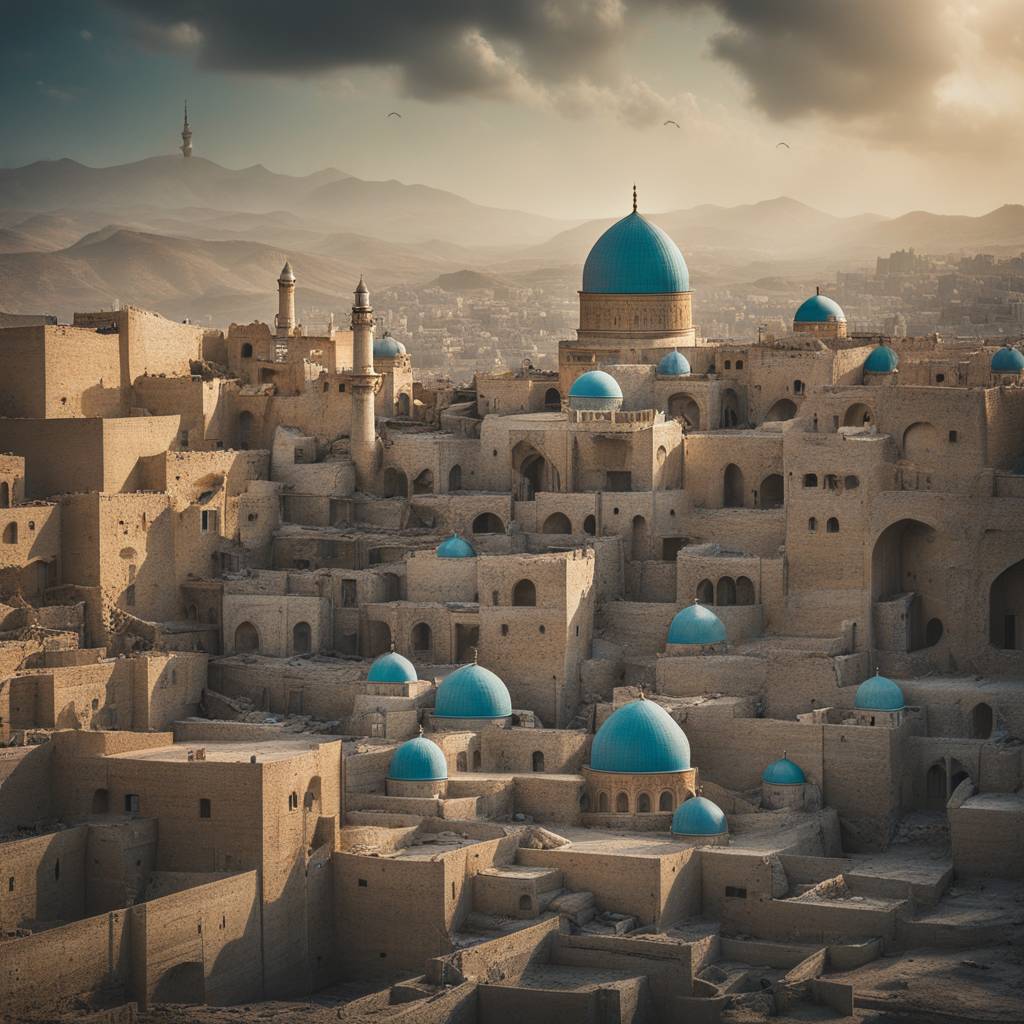Iran’s Supreme Leader Ayatollah Ali Khamenei threatened to take action against Israel during a prayer ceremony, criticizing the U.S. and the West for their involvement amid tensions in the region. Khamenei promised to retaliate against Israel for an airstrike that demolished Iran’s consulate in Syria, leaving several Iranian generals dead. He stated that the strike was akin to an attack on Iran itself and vowed to punish the “evil regime.” Israeli Foreign Minister Israel Katz responded, warning that Israel will retaliate if Iran attacks from its own territory.
Israel has not acknowledged its involvement in the airstrike, which also resulted in the deaths of four Syrians and a Hezbollah militia member. Hamas, a terror group governing the Gaza Strip and funded by Iran, has also received support from the country. Israel has been bracing for an Iranian response amid its long-running shadow war with Hamas. Khamenei did not provide specific details on how Iran would retaliate, but tensions between the two countries remain high.
During his speech, Khamenei criticized the West, particularly the U.S. and Britain, for supporting Israel in its conflict with Hamas in Gaza. He expressed disappointment in the Western governments for not doing more to end the war and prevent Israel’s actions. Iran supports anti-Israeli terror and militant groups, and does not formally recognize Israel. Khamenei’s comments further escalated tensions in the region and raised concerns about the potential for further conflict between Iran and Israel.
The Israeli government, on the other hand, has been preparing for potential attacks from Iran, given its support for Hamas and other militant groups in the region. Israel’s defense minister stated that Hamas has effectively ceased functioning as a military organization, highlighting the ongoing security challenges faced by Israel. The country remains vigilant in monitoring the situation and responding to threats as needed. The airstrike on Iran’s consulate in Syria has heightened concerns about the possibility of a broader conflict in the region, with both sides prepared to defend their interests.
The ongoing tensions between Iran and Israel have also brought into focus the role of other regional actors, such as Hezbollah in Lebanon, which has launched attacks on Israel in recent months. Iran’s support for these groups has further fueled the conflict and complicated efforts to achieve peace in the region. While both Iran and Israel have legitimate security concerns, their actions have continued to exacerbate the situation and create obstacles to diplomatic resolution. The international community has a vested interest in de-escalating the conflict and preventing further violence in the region.
As the situation continues to evolve, the risk of a wider conflict looms over the Middle East, with Iran threatening possible retaliation against Israel. The involvement of other militant groups, such as Hamas and Hezbollah, adds another layer of complexity to an already volatile situation. The actions and rhetoric of leaders in Iran and Israel further highlight the challenges of finding a diplomatic solution to the longstanding conflict. The international community must work together to prevent further violence and promote dialogue between the parties involved to achieve a lasting peace in the region.













